Focus
Your Present Location: HOME> Focus-

New Shanghai-London Stock Connect benefits both sides
The scheme linking Shanghai and London stock markets, named Shanghai-London Stock Connect, officially launched today. It is regarded as a milestone in China's finance reform.
2019-06-18 -
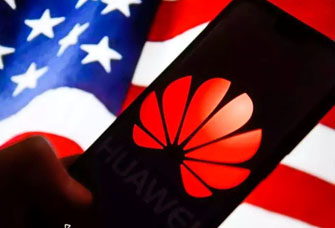
William Jones: The U.S. Could Be Shooting Itself in the Foot with Huawei Sanctions
The near-hysteria in Washington over the expansion of Huawei worldwide and its development of 5G technology has provided some much sought ammunition for politicians here in Washington with a dearth of ideas for resolving America’s economic woes, and may have some short-sighted benefit for them among a populace fearful that the direction of American society is on a downward spiral. Finding a scapegoat for the country’s dilemma apart from the powers in Washington that actually determine the fate of the nation, is always a welcome relief for those power-brokers who hold themselves above scrutiny. And preventing a competing nation from becoming an integral contributor to the vital communications networks on which the world increasingly depends is an added boon. And yet the attempt to undermine Huawei from becoming a bigger player in the world’s communications systems may in fact sabotage the growth of U.S. companies engaged in the same field.
2019-06-17 -
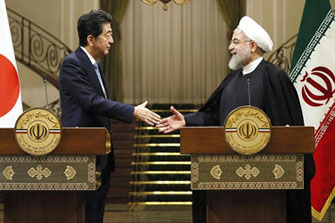
Guan Zhaoyu: Why is Abe's visit to Iran a much-needed trip?
On June 12, Japanese Prime Minister Shinzo Abe arrived in Iran for a two-day visit. His visit has attracted worldwide attention, which aimed to reduce the tension between Iran and the U.S. During his visit, Abe met with Iran's supreme leader Ayatollah Ali Khamenei and its President Hassan Rouhani. He is the first incumbent Japanese Prime Minister who has visited Iran since Yasuo Fukuda in 1978.
2019-06-14 -

Wang Wen: China and Russia seek further cooperation in finance, education and culture
At the 6th China-Russia economic think tank dialogue and the 4th Russia-China business forum, many Russians held an active attitude toward enhancing cooperation with China and benefit from China's Belt and Road Initiative.
2019-06-13 -

Liu Zhiqin: The US seriously distorts market economy
Many have been thinking the same questions: What kind of country is the US? Is it still a "normal market economy?" The eccentric behavior of the US has sparked people to re-examine the world's largest economy. What is its problem?
2019-06-13 -
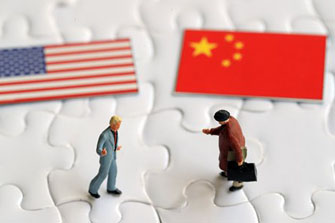
Ding Gang: US and the hierarchy of civilizations
In 1876, the US Congress had a debate on the Chinese immigrants. One side thought the Chinese immigrants should be expelled from the US while the other side believed they needed to be "tamed" in keeping with God's request. They were united by the common refrain - Chinese are an inferior race. What divided them was the approach to this Asian people - whether the Chinese immigrants should be shunned or assimilated by an attempt to change them.
2019-06-13 -
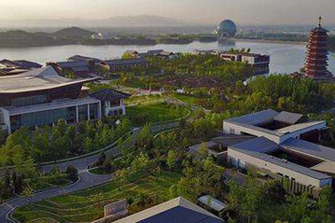
Wang Wen: China brings new confidence to the world
Dr. Wang Wen, Executive Dean of Chongyang Institute for Financial Studies (RDCY) and the Deputy Dean and Distinguished Visiting Professor of Silk Road School at Renmin University of China,was interviewed by Belt&Silkroad.com, a Indonesian website initiated by UCLG ASPAC to create a platform for communication and knowledge sharing among the people along the silk roads.
2019-06-12 -
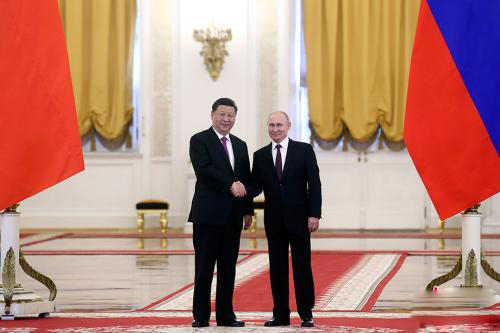
Strengthening China-Russia Partnership: The Necessity of Solidarity for a New Era
During the state visit, we saw that China and Russia continue to steadily push forward the possibility of such loyalty. Both sides have agreed to build close ties between the Belt and Road Initiative and the Eurasian Economic Alliance, which require more political wisdom and business plans in order to satisfy both sides.
2019-06-12 -
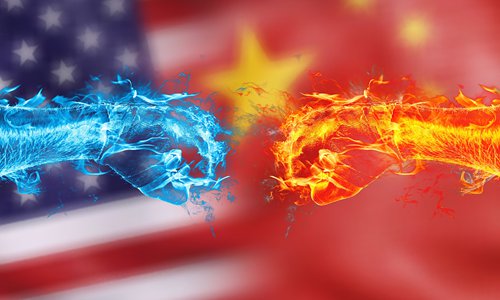
John Ross: What are China’s most powerful weapons in economic ‘prolonged war’ with Trump?
‘At least two other organizations have more power over [US financial] markets than the White House. They are the US Federal Reserve and the Chinese Communist Party. Trump does not directly control either of them.’
2019-06-10 -
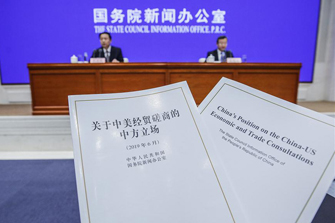
Yang Fanxin: Chinese white paper exposes flaws in Trump's 'America First' policy
"China's Position on the China-U.S. Economic and Trade Consultations" represents the authentic voice of the Chinese on their concerns over the trade restrictions launched by the United States some 15 months ago.
2019-06-10 -
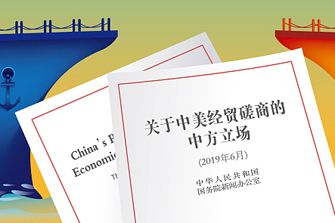
William Jones: China grows weary of the U.S. moving the goal posts on trade
The publication by China's Ministry of Commerce of the policy white paper “China's Position on the China-U.S. Economic and Trade Consultations” last week, coupled with China's Ministry of Commerce's research report on U.S. gains from bilateral trade cooperation on Thursday, are really China drawing a line in the sand, noting that their patience was running out with the continual shifts in U.S. policy in resolving the contentious trade negotiations. How many times have we seen the two sides approaching some type of agreement when suddenly President Donald Trump, or one of his advisers, makes some remarks about issues that remain unresolved and throws everything into turmoil?
2019-06-10 -

Han Hua: Duan Wu continues to bring people together
Duan Wu, literally the "double fifth" lunar day and month, or Dragon Boat Festival, brings people closer every year. Why? Unlike many other traditional holidays that honor gods or Mother Nature, Duan Wu was created by the people to commemorate a real person.
2019-06-10 -
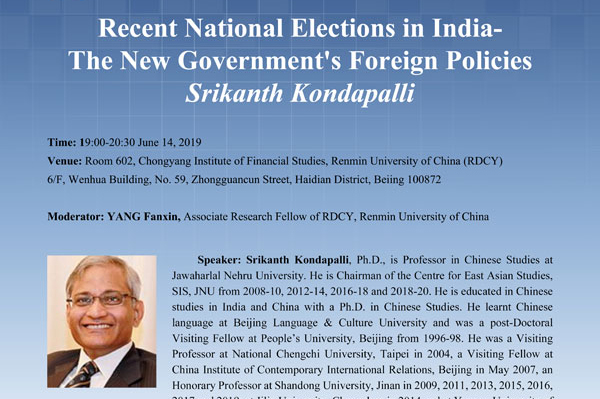
Srikanth Kondapalli: Recent National Elections in India- The New Government's Foreign Policies
Srikanth Kondapalli, Professor in Chinese Studies at Jawaharlal Nehru University, will give a lecture with the theme of “Recent National Elections in India- The New Government's Foreign Policies” on June 14, 2019.
2019-06-10 -
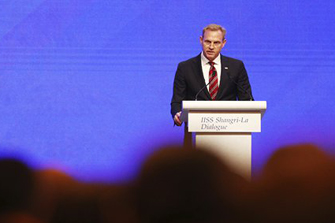
Zhao Minghao: With stepped-up plan, US takes aim at China
The Pentagon released its first Indo-Pacific Strategy Report (IPSR) on June 1. On the same day, US Acting Defense Secretary Patrick Shanahan explained the main points of this report when he spoke at the 18th Shangri-La Dialogue in Singapore which was held between May 31 and June 2. Amid an escalating trade conflict between China and the US, US President Donald Trump's administration is determined to invest more resources in implementing the Indo-Pacific Strategy, especially in the field of security, which has not only alarmed Beijing, but also unsettled most countries in the region.
2019-06-10 -
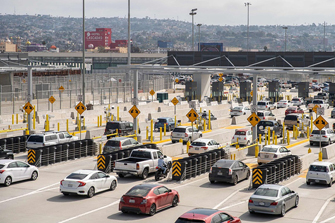
William Jones: Despite a trade agreement, Trump threatens Mexico with new tariffs
U.S. President Trump seems almost obsessed with his newfound ability to get his way using tariffs as a weapon. Concerned with the continued flow of migrants on the U.S. border with Mexico, which he blames on Mexico's rather limited ability to prevent migrants from coming through their country to the U.S. border, he is now threatening Mexico with a five percent tariff starting on June 10.
2019-06-06 -

Ding Gang: Nepal not a pawn in US’ China strategy
Over 200 years ago, British colonists began to march into Nepal, with China's Tibet their next target. But the era of Western expansion starting from 500 years ago is gone forever. China's policy of creating an amicable and prosperous neighborhood will offer people of Nepal and other South Asian countries more opportunities to improve their living standards.
2019-06-06 -
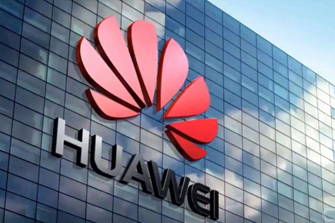
He Weiwen: How Trump's Extreme Pressure on China is Backfiring
US President Donald Trump said recently on Twitter that Huawei could be part of a potential trade deal. In other words, America’s recent outright ban on Huawei was not truly done for national security reasons — there was no evidence supporting the allegations — but rather as a bargaining chip to help get “a great deal” with China.
2019-06-04 -
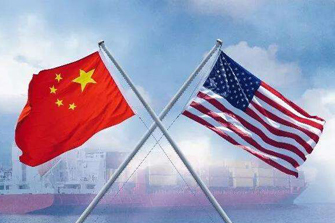
Zhao Minghao: US has shot itself in the foot by escalating trade war
As the US has recently tightened the screws on tariffs and as talk of a "tech cold war" looms, the prospect of an agreement between China and the US appears gloomier.
2019-05-31 -
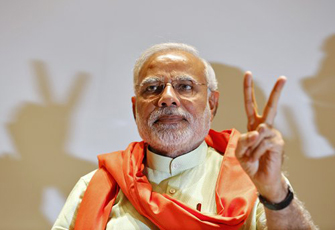
Ding Gang: Pros and cons of Modi as a strong politician
Indian Prime Minister Narendra Modi's thumping victory on May 23 reflects the power of nationalism in an ascendant nation. Such a sentiment led voters to re-elect Modi and vest their future in him.
2019-05-30 -

FTZ could be impetus for China-Russia trade, cooperation in new areas
Russia and China could establish a free trade zone (FTZ) of a limited size in the initial phase, as an answer to a rising tide of protectionism around the world, Chinese analysts said on Wednesday.
2019-05-30
























































































 京公网安备 11010802037854号
京公网安备 11010802037854号





